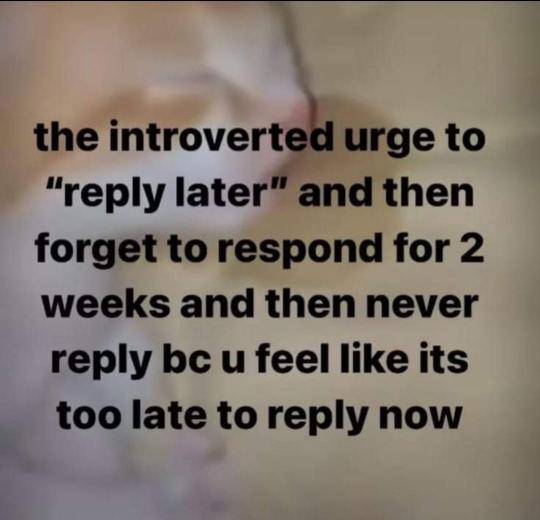opinionated neurodivergent writer and rambler | they/them | pan oriented aroflux ace | intj
Don't wanna be here? Send us removal request.
Text
"No one wants to work anymore." Damn right brother. If I could sit in a beautiful field for 40 hours every week of my singular precious life I would
152K notes
·
View notes
Text
📖 On editing as you write
I've seen a lot of "don't edit as you write" and "just get it all down on the page as fast as you can and keep going" writing advice online. While this totally works for some people and some projects, especially if you're writing with an outline and/or are very momentum-driven, I'd like to offer a different perspective.
Editing as you go, reworking the same scene or chapter a few times before you move on, and focusing on small details in early drafts can be super helpful for some writers.
I usually discovery write these days, so doing a deep dive into most scenes as I go along is amazing at helping me understand the story as it develops and it gives me a clearer insight into the characters and their motivations. Zooming through a zero draft or first draft wouldn't serve the same function for me.
Yes, there are definitely scenes and chapters that I fly through and just get the words out, knowing those sections are purely functional for now and I'll come back to them later. Those tend to be the more plotty and actiony parts for me, where what I need to make progress is this-happens-then-that-happens information.
But obsessively fiddling with individual words and sentence structure when it feels right enables me to really dig into my story. It doesn't prevent me from moving forward. It helps me move forward in the right direction. It lets me build the foundation I need and it gives me a cleaner draft to work from when it comes time to revise.
So if you feel like you're Doing It Wrong™ because you prefer to edit as you go, you aren't. You're just doing it differently from how some other people do it, and that's OK. We all have our own processes. Sometimes different projects, or different stages of the same project, call for different approaches.
If it's working for you, it's working. Keep going 💜
#yesss#i'm an edit as i go writer#i always just ignore the ''don't edit until you're done'' advice#because it just works better for me#writing
900 notes
·
View notes
Text
I hate it when people are like “get out of your comfort zone” literally every single thing I do in my life feels like me getting out of my comfort zone
56K notes
·
View notes
Text
This post is your reminder that you are not obligated to blog about current events.
Things are bad. Really bad. Do not let people guilt trip you into tormenting yourself even further over the fact that things are bad. Doomscrolling is not activism.
If you're just on tumblr to blorbopost or reblog pretty pictures, you are not harming people by inaction.
You are not a bad person for not dedicating every aspect of your life and leisure space to whatever disgusting mask-off attack on human life and dignity some government has decided to enact.
Take action where you can, but don't confuse doomscrolling and digital self harm for action.
If you need to lose yourself in blorboposting, go for it.
If you need to log off for the day, whether it's to take irl action or to protect what little sanity any of us have left over the past 7 years, then by all means, do.
Morale is important. Hope is important. Small joys keep us from burning out completely in times like this. Do not let any "if you don't reblog this I'm judging you" guilt trip convince you otherwise.
#important#i get severe anxiety over certain things#i have sooo many words related to my triggers blacklisted#i'm not sorry for keeping my blog and other online spaces free from those things#i'm not sorry for putting my mental health first#there are far better ways to help than reblogging or retweeting something anyway#so i'm going to keep my online spaces safe ones for myself and anyone else who wants to escape from the stress and anxiety of the world
58K notes
·
View notes
Text
gentle reminder to you — yes, you — that your writing is better than you think it is and it’s okay to feel proud of it
#i go through periods where i think i'm actually pretty good#but most of the time i just think ''i'm not as good as so-and-so'' or i read a book/fanfic and think ''they're way better than me''#it's hard to break out of that mindset where you compare your work to others#and i think that's something most writers can really relate to#so being reminded like this is nice#be proud of your work#there's nothing else like it out there#writing
11K notes
·
View notes
Text
If you ever find yourself thinking "oh it's only ██:00, I still have plenty of time before this turns into sleep deprivation" that is the devil speaking. Go to bed NOW before it's too late
40K notes
·
View notes
Text

#literally me#was planning to write just one#but the outline just kept getting longer and longer... 💀#so now it's going to be split into 3 plus one more following another character in that same world#writing#it never goes the way you plan
11K notes
·
View notes
Text
sorry for posting so much but i HATE when a song's lyrics fit a character or a ship perfectly until like one line or perhaps the chorus and it's such a shift from the rest that it's completely unusable
20K notes
·
View notes
Photo

Here’s an invaluable writing resource for you.
80K notes
·
View notes
Text
When I'm liking your vent post just know that I'm kneeling with my sword to offer you support.
75K notes
·
View notes
Photo



Tightly Woven Baskets Intertwine Invasive Plants and Weeds into Adorable Miniatures
5K notes
·
View notes
Note
How do I make internal conflict subtle, without being so subtle the readers miss it?
Internal conflict is a vital component of any compelling story. It’s the central axis of any good character arc and drives the narrative forward. However, writing internal struggles effectively without resorting to heavy-handed exposition can be challenging. Here are some quick tips on writing subtle internal conflict.
Show, don’t tell
Reveal a character’s emotions through actions, thoughts, and dialogue.
Use body language and gestures to convey inner turmoil, like fidgeting, clenched fists, or avoiding eye contact.
Write sensory details to immerse readers in the character's emotional experience, like describing the taste of bitterness or the prickling of anxiety.
Incorporate changes in a character's routine or habits that hint at inner changes, like a punctual character being late, or changing taste in music.
Use the character's reactions to their environment as a reflection of their emotions. The same setting might appear grey and dark to one, but bright and vibrant to another.
Use subtext
Write subtext into dialogue, where characters say one thing but mean another.
Drop subtle hints at emotions that readers can infer rather than spelling everything out.
Experiment with non-verbal communication like meaningful glances, pauses, or hesitations.
Invoke subtext through characters' internal thoughts and uncertainties, without the character fully acknowledging their deeper feelings.
Use dramatic irony, where the reader knows more than the character does about their own feelings or situation.
Develop complex characters
Give your characters conflicting desires, values, and goals to naturally generate internal conflict.
Create backstories that reveal past traumas or experiences that continue to haunt and influence their decisions.
Consider using character flaws and contradictions to highlight internal struggles.
Use relationships to create conflicting desires and expectations.
Give your characters both internal and external conflicts to build tension between dealing with personal struggles and outside problems.
Employ inner monologues
Incorporate introspective moments where characters wrestle with their inner demons, doubts, and fears.
Use first-person or close third-person perspectives to allow readers direct access to the character's thoughts.
Balance inner monologues with external action to maintain pacing and engagement.
Use an unreliable narrator so readers try to distinguish between what is a misperception and what is the truth.
Create inner thoughts that highlight the difference between a character's public persona and their private world.
Create moral dilemmas
Force characters to make difficult decisions that represent turning points in their arcs.
Explore the consequences of a character’s choices on their sense of self and their relationships.
Have your character confront a personal sacrifice where they must question their own motives and values.
Have a character balance loyalty and personal integrity, having to decide where their personal morality lies.
Force a choice between self-preservation and the greater good where their choice not only has personal stakes, but story-wide ones as well.
906 notes
·
View notes
Text
With NaNo approaching please remember:
💌 It's okay to work hard to meet a wordcount.
💌 but it's also okay to write at your own pace.
💌 Being able to write a lot in a short amount of time is not every writer's goal.
💌 It's great if you feel motivated by writing challenges.
💌 but it's perfectly fine if writing challenges stress you out.
💌 There is no one way to get writing finished.
💌 As long as you are writing what you want to write, when you want to write it, you are winning!
2K notes
·
View notes


